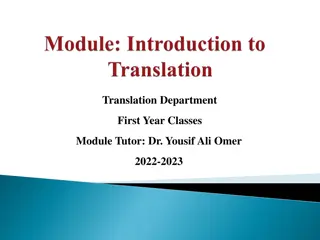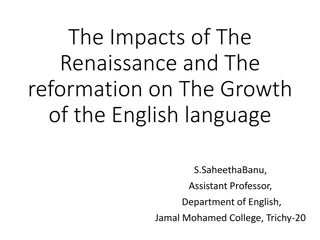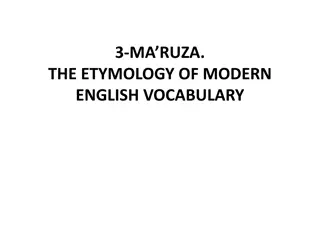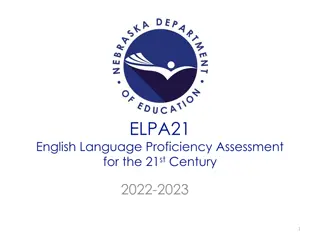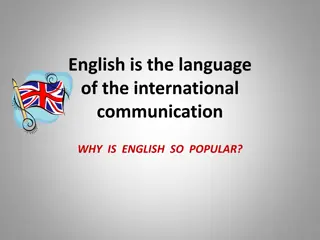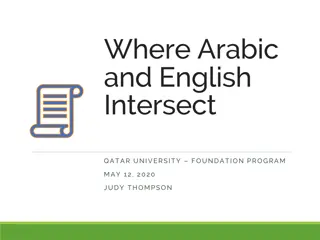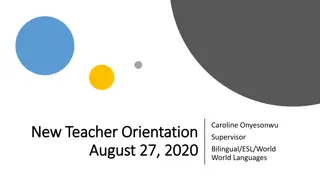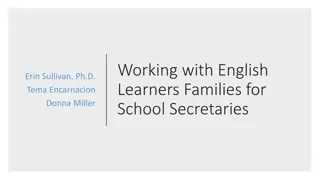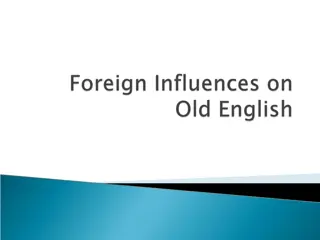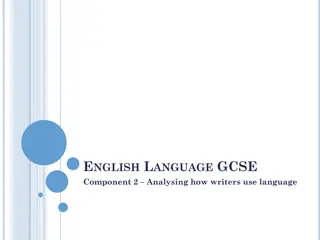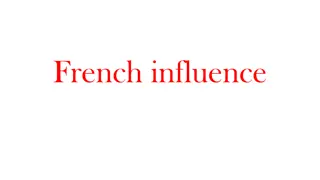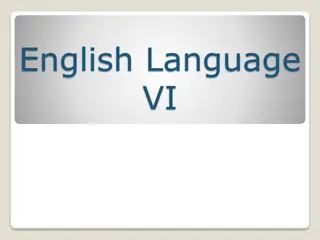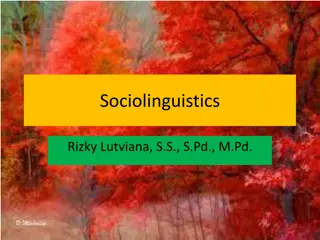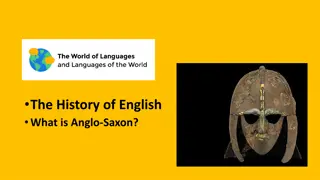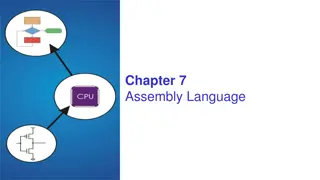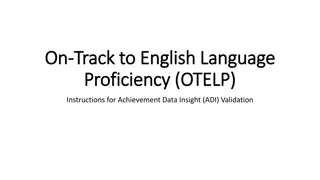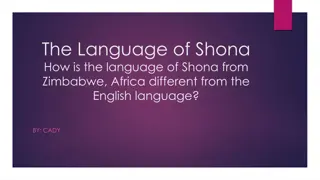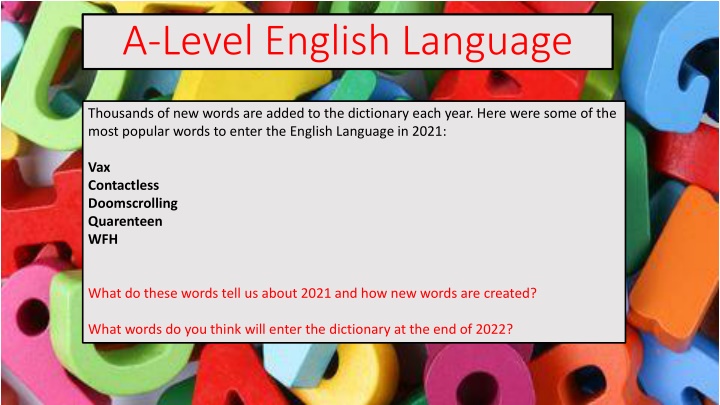
Exploring English Language: A-Level Course Overview
Dive into the fascinating world of English language with this A-Level course. Uncover the nuances of language structure, functions, and development while examining its impact on society and individuals. Enhance your writing skills and broaden your understanding of language diversity and change.
Download Presentation

Please find below an Image/Link to download the presentation.
The content on the website is provided AS IS for your information and personal use only. It may not be sold, licensed, or shared on other websites without obtaining consent from the author. If you encounter any issues during the download, it is possible that the publisher has removed the file from their server.
You are allowed to download the files provided on this website for personal or commercial use, subject to the condition that they are used lawfully. All files are the property of their respective owners.
The content on the website is provided AS IS for your information and personal use only. It may not be sold, licensed, or shared on other websites without obtaining consent from the author.
E N D
Presentation Transcript
A-Level English Language Thousands of new words are added to the dictionary each year. Here were some of the most popular words to enter the English Language in 2021: Vax Contactless Doomscrolling Quarenteen WFH What do these words tell us about 2021 and how new words are created? What words do you think will enter the dictionary at the end of 2022?
What will I get from the course? Development of essay writing skills. An ability to analyse language at different levels. The chance to create your own creative and journalistic writing. A course that supports and complements other A Level courses. Highly enthusiastic and motivated specialist teachers
Course Overview The course aims to further candidates interest and enjoyment in the use of English, through learning more about the structures and functions of English and the way language is used in real contexts. Students entering this course should be fascinated by all aspects of written and spoken English. They will be keen to develop their own writing skills and interested in understanding the position of the language within society.
Course Overview Language, the Individual and Society: In this unit students explore how language is shaped according to audience, purpose, genre and mode, and how it varies according to context. Students can expect to analyse a range of texts such as articles, adverts, texts, tweets and speeches.
Course Overview Children s Language Development: Students learn how children (0-11 years) develop their spoken and written skills by studying theories and research about language acquisition as well as exploring the functions of children s language.
Course Overview Language Diversity and Change: The focus of this unit is to explore how language varies across different social groups (occupation, ethnicity, class, age, gender, sexuality). We also study regional, national and global variations of English and explore how the English Language has changed from 1600 to present day.
Course Overview Coursework Projects: Students have the chance to work independently to carry out a language investigation into an area of individual interest. They must also create a written piece (for example a short story, a piece of travel journalism or a persuasive speech) and accompanying commentary.
Skills and possible pathways Skills Creative, journalistic and analytical reading and writing skills The ability to evaluate theoretical research and concepts The ability to read a range of complex texts using a linguistic approach The ability to conduct focused and in depth independent research Possible Pathways An undergraduate degree in linguistics or any other relevant arts subject. A career in advertising and marketing, writing and journalism, law, consultancy, business, teaching, performing arts, academia, government linguistics, lexicography, media and design.
Course Requirements Students embarking on the AS and A Level courses needs at least a grade 5 in both GCSE English Literature and English Language Any further questions? - Speak to your English teacher or email: ereynolds@sheldonschool.co.uk gbowen@sheldonschool.co.uk Assessment Methods - - 2 exam papers (2 and a half hours each) = 80% 2 x coursework projects = 20%


